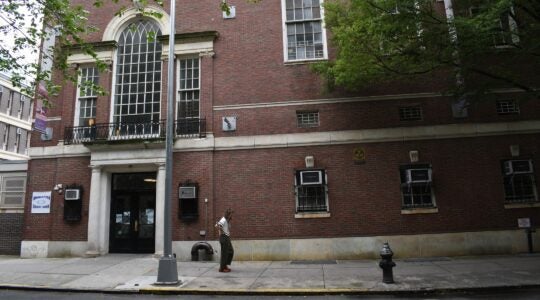In “This is a Soul: The Mission of Rick Hodes,” Marilyn Berger, veteran journalist and the widow of “60 Minutes’” Don Hewitt, tells the story of the Long Island-born, ba’al teshuva physician who has spent two decades treating poverty-stricken patients in Ethiopia and traveling to the sites of famines and various disasters. Last year she went to Ethiopia to see Hodes in action, spending Shabbat meals with him and his extended Ethiopian family.
What attracts a secular writer from Manhattan to a religious doctor in the middle of Africa?
I went to Ethiopia because a friend told me that I would find there the most altruistic and compassionate human being that any of us have ever met. Rick Hodes is not, what I would call, a “religious doctor.” He is a doctor who happens to be religious and passionately devoted to Judaism. But his humanitarian spirit preceded his conversion to Modern Orthodox Judaism. He gets joy from helping people and saving lives and always has. I’d been asked many times to write a book, but this was the first character who grasped my interest enough.
Dr. Hodes has been doing his humanitarian work for two decades, he’s been the subject of a couple of documentaries and he’s been a CNN Heroes finalist. What are you adding to his story?
Dr. Hodes was working largely in obscurity, known only to close readers of the Jewish press, when I started researching this book. I found it striking that he was so little known despite the two decades he’d devoted to life-saving humanitarian work. My book tells the story of his work at Mother Teresa’s mission in the spirit of tikkun olam.
Medical coverage here is largely technology-driven — expensive procedures and state-of-the-arts diagnostics. What can we learn from a lone physician running around Addis Ababa treating diseases the West thought had disappeared?
Perhaps the first thing to learn from Rick Hodes is compassion and the basic need to treat the entire patient, not just the disease. Rick knows that the people he sees have suffered long and are losing hope. He gives them a sense that they have a chance in life. He knows they don’t get enough to eat so he reaches into his pocket over and over again to provide money for this most basic necessity. He looks the patient in the eye, he tells him he’s happy he can help — and he means it.
When he sends lab studies and x-rays to other doctors to consult with them, he always includes a photograph of the patient. They inevitably ask why the picture. “This isn’t just a back,” he replies, “This is a soul.”
You avoided picturing Dr. Hodes as the second coming of Dr. Schweitzer, as a Jewish saint devoting his life to Africa’s indigents. You described him as a loner whose hand was forced by God. You allude to his social life and the rumors that accompany anyone in the public eye. How do you reach a balance between hero worship and tell-all biography?
I don’t think he would think his hand was forced by God. One rabbi actually suggested to me that Rick is one of the 36 just men in our midst. I do think he is something of a modern-day Schweitzer but without the colonial overtones and self regard. I don’t know of “rumors that accompany” him and I didn’t report much about his social life because he doesn’t have a social life. He works all the time. I told all that I knew so in that sense, it is a tell-all biography. It was not difficult to avoid hero worship. I had free access to the people who know him, all of whom recognize his enormous contribution, and many of whom find him not always easy to deal with.
Dow Hewitt was known as a master storyteller. What did he think of the Rick Hodes story?
He was my main cheerleader. He thought the Rick Hodes story is a knockout.
|
Signup for our weekly email newsletter here. Check out the Jewish Week’s Facebook page and become a fan! And follow the Jewish Week on Twitter: start here. |
The New York Jewish Week brings you the stories behind the headlines, keeping you connected to Jewish life in New York. Help sustain the reporting you trust by donating today.




